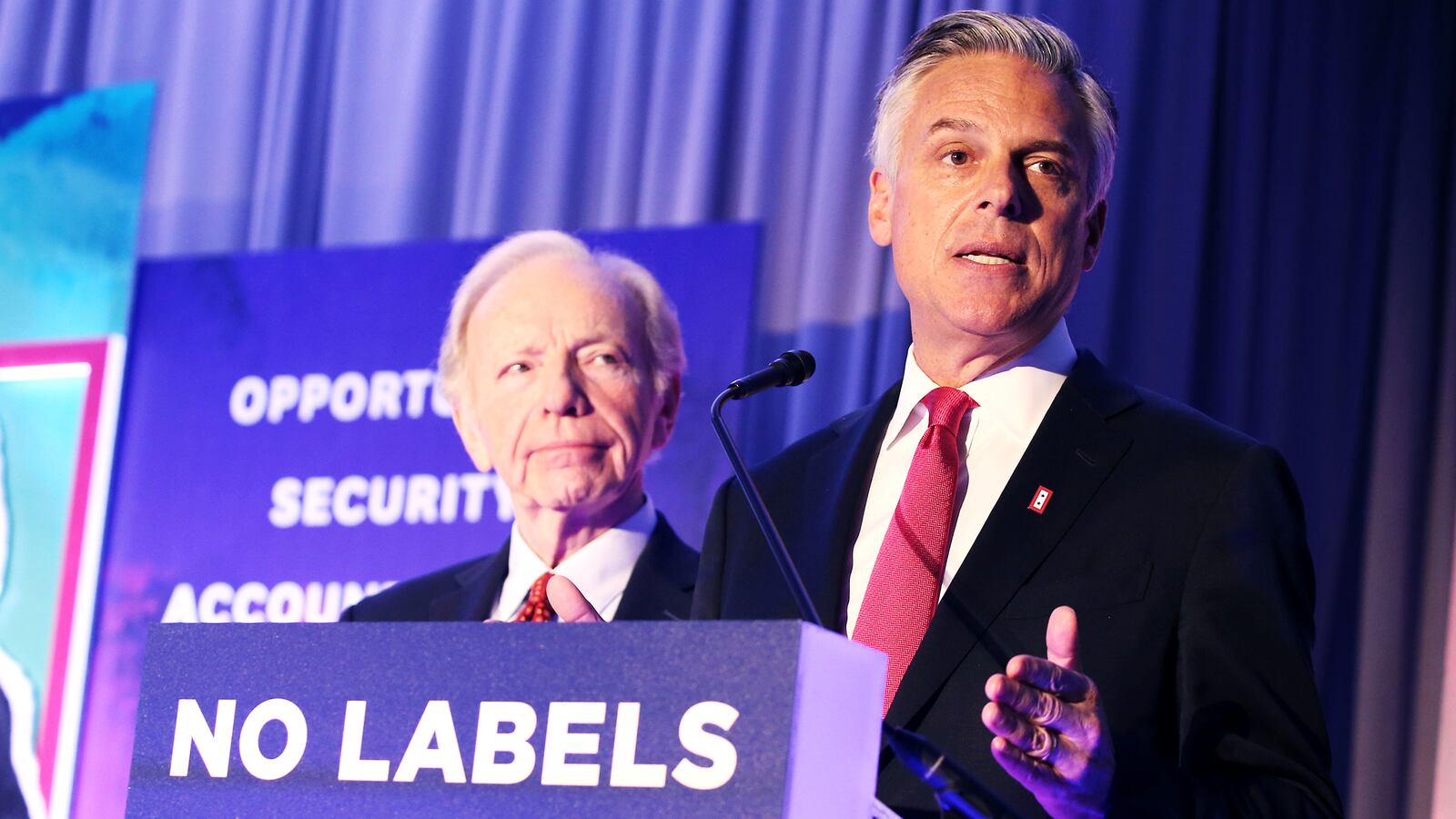Back in January, when Donald Trump got the “Problem Solvers” seal of approval from No Labels, a bipartisan group dedicated to working across party lines, the media mostly guffawed. A candidate getting headlines for insulting his rivals and denigrating various groups of voters wasn’t the kind of consensus-builder the group normally identified with.
Now Trump is the president-elect, and No Labels is following through on its commitment to provide a critical mass of some 80 members of Congress, members of the Problem Solvers Caucus, drawn about equally from both parties, who will be the “go-to group” on tax reform, infrastructure, immigration, and health care, the agenda Trump will launch during his first 100 days.
It’s not clear Trump will pay them any attention, but Republican Jon Huntsman, former governor of Utah and a national co-chair of No Labels, talked Trump’s language when he introduced a series of panels Monday in Washington discussing the way forward.
Huntsman said No Labels was planting its flag “where the deals get made,” and that its members were laying claim to “new political real estate,” which has gone unclaimed since the partisan wars intensified during the Obama administration.
Because crossing party lines is dangerous business in this hyperpartisan political climate, New Labels is putting real money behind its effort, launching a $50 million super PAC to “put some bite behind our bark,” said Nelson Peltz, the chief executive of Trian Fund Management and a principal funder. The super PAC dubbed “1787,” a nod to the Founding Fathers and their work, will focus on primaries in which lawmakers who stray from party orthodoxy often get challenged by their party’s extremes.
Former Democratic Sen. Joe Lieberman hailed the creation of “a true center” as critical to a functioning democracy. Otherwise, it’s “battling factions,” and it “feels like we’re coming apart.”
The people assembled in the ballroom of the Ritz Carlton Hotel for the No Labels launch event were still processing an election outcome they never expected. But there was hope in the air that maybe Trump will turn out to be better, or at least different, from all the doomsday predictions offered by his Democratic critics and the Never Trump Republicans.
‘The election of Donald Trump is a disruptive event for a political system that needs to be disrupted,” Lieberman said, adding that he needs people from both parties to help him succeed.
“Disruption isn’t a bad thing,” said Missouri Sen. Roy Blount, who just won reelection. Blount said the Republican majority would move quickly to pass two different budgets, one a “vehicle to do something about health care,” the other a longer-term budget.
Republicans are under great pressure to repeal and replace Obamacare, a pledge they ran on in the last three elections, 2012, 2014, and 2016. Using the same procedural legislative tool known as “reconciliation” that the Democrats used to pass Obamacare with 51 votes, Republicans will move to repeal the Affordable Care Act, but then they’re stuck because they don’t have a replacement.
West Virginia Democrat Joe Manchin spoke up, identifying himself as from the moderate-centrist wing of his party and saying, “We’re looking at everything we can to work with the president-elect, and if we disagree, we’re going to do it respectfully.” But then he served notice that a party that has had six years to come up with a replacement for the Affordable Care Act shouldn’t expect the Democrats to go along with repeal and then give the GOP two or three years to produce the successor, conveniently timed for after the 2018 midterm elections.
Manchin didn’t sound eager to throw the GOP a lifeline. “They had six years to work on [Obamacare]” he said. Nevertheless, he went on, “I think it needs to be repaired. We need a path forward.” Manchin is up for reelection in 2018 in West Virginia, where he is the only statewide elected Democrat left, so he has strong incentive to work with Trump, and Trump with him.
The challenge for Democrats, said Vermont Democrat Peter Welch, is, “Do we fight for failure or do we put out a positive agenda?” He said his party is “in turmoil, we got hammered, we’re a bicoastal party, we don’t have answers for the people we like to think we represent.”
That’s where No Labels can play a positive role. The group has done an enormous amount of policy work, finding initiatives that could win support in both parties to advance four broad goals: create 25 million new jobs over the next 10 years, secure Social Security and Medicare for the next 75 years, balance the federal budget by 2030, and make America energy secure by 2024.
When Trump received the group’s seal of approval almost a year ago, he scoffed at those goals, said they were easy and he could beat those deadlines. Now he’ll get a chance to test his optimism against the looming realities of Washington.






